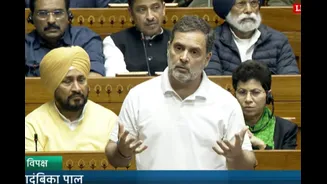Choice Over Control
The main discussion point revolves around the need for more options in India's pension system, rather than stricter government control. This viewpoint,
supported by the pension regulator, suggests a move toward allowing individuals more freedom in how they manage their retirement funds. This approach differs from systems where the government heavily dictates investment choices and fund allocations. The push for more choices could involve a wider range of investment options, allowing people to align their retirement savings with their risk tolerance and financial goals. Furthermore, it implies a move towards empowering people to take charge of their financial futures and make informed decisions about their retirement plans. By providing multiple avenues for investment, the system could potentially increase returns and better suit the diverse financial needs of the population.
Individual Empowerment
A key benefit of this proposed shift is the empowerment of individuals to make choices related to their retirement savings. This means that individuals would gain a more active role in planning their financial future. Instead of relying solely on a fixed set of investment choices, people would have the ability to select the investment vehicles that best fit their personal financial strategies and risk appetite. This active participation can lead to increased financial awareness. It would encourage people to understand market dynamics and investment instruments more deeply. The potential outcome is a more engaged and informed citizenry prepared for retirement. It also paves the way for a more customized retirement approach. This moves away from a one-size-fits-all model.
Investment Flexibility
The shift toward greater choice in pension investments often leads to more flexibility in the types of investments that people can make. The implication is that people would be able to diversify their investment portfolios more effectively. They could potentially include a variety of asset classes like stocks, bonds, and real estate. This diversification reduces the overall risk of the retirement portfolio, making it more robust against market fluctuations. Another implication is the possibility of accessing higher-yield investment options that may not be available in a more tightly controlled system. This might include opportunities in private equity or specialized mutual funds. However, increased flexibility also means greater responsibility for investment decisions. Therefore, it may necessitate increased education and guidance for individuals to help them navigate the investment landscape and make well-informed decisions.
System Efficiency Boost
By offering more investment choices, India's pension system can potentially boost efficiency. Increased competition among fund managers striving to offer the best investment products and returns is one way. This could potentially drive down management fees and improve the overall performance of the funds. This competitive dynamic is beneficial as it spurs innovation in investment strategies. It also encourages fund managers to use their expertise to create value for their clients. A system with diverse investment choices might encourage greater participation. A well-designed, flexible system may attract more people to save for retirement. This increased participation is crucial in ensuring a financially secure retirement for a larger portion of the population. The enhanced choice and competition could improve the overall financial health of the pension system.
Challenges and Considerations
The shift to a more choice-based pension system is not without its challenges. One of the main concerns is the need to educate and inform people about investment options and the risks involved. This requires effective financial literacy programs and access to unbiased financial advice. Another challenge is to ensure that the increased choice doesn't overwhelm people. Providing a streamlined and user-friendly interface is essential to help people make well-informed investment decisions. In addition, there is a need for robust regulatory oversight to protect individuals from fraudulent schemes and to guarantee the stability and integrity of the system. This includes ensuring that fund managers adhere to strict standards of transparency and accountability. A well-considered implementation strategy, focusing on education, regulatory oversight, and a user-friendly framework, is key for a successful shift.















